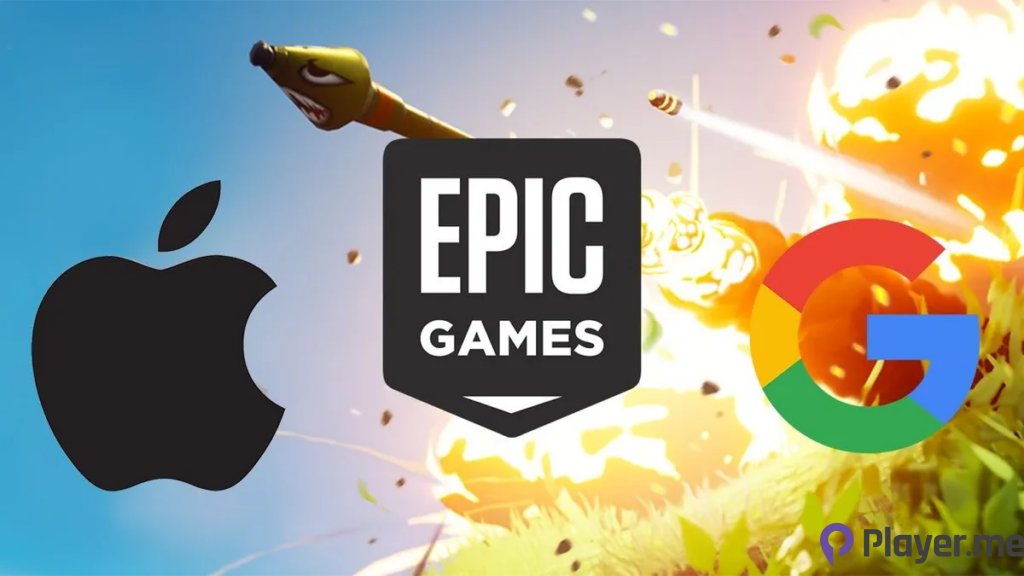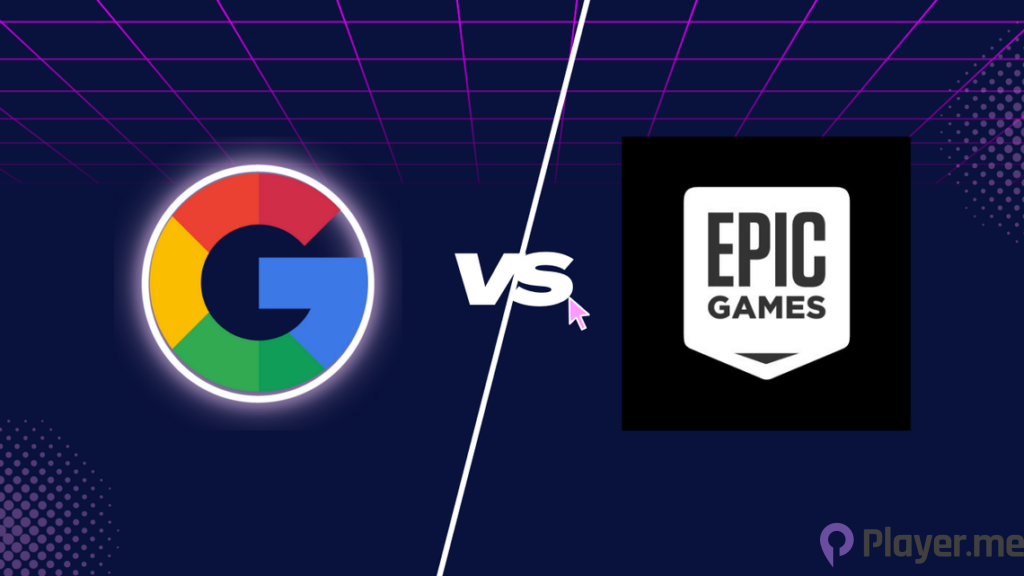It’s been three years since Epic Games, the maker of Fortnite, sued Apple and Google in its Epic Games v. Google antitrust trial and Epic Games v. Apple trial for allegedly having an illegal app store monopoly. Today, Epic finally has the dub as the jury just delivered its verdict in favour of the software developers and publishers as the court ruled Google has turned its Google Play app store and Google Play Billing service into an illegal monopoly.
After achieving the historic victory, Epic Games founder and CEO Tim Sweeney tweeted: “Victory over Google! After 4 weeks of detailed court testimony, the California jury found against the Google Play monopoly on all counts. The court’s work on remedies will start in January. Thanks for everyone’s support and faith! Free Fortnite!”
Epic Games also released a statement on its company blog highlighting the victory. “Today’s verdict is a win for all app developers and consumers around the world. It proves that Google’s app store practices are illegal, and they abuse their monopoly to extract exorbitant fees, stifle competition and reduce innovation.”
Also Read: Google Play Best of 2023 Awards: Full List of the Best Apps and Games
How Did the Epic Games v. Google Antitrust Trial Come to Be?
For people not in the loop of this long-standing Epic Games v. Google antitrust trial, this trial started in 2020 when Epic added a mobile option to Fortnite, allowing players to purchase Fortnite’s in-game currency V-Bucks directly from the company at a discounted price, avoiding both Apple’s App Store fees and Google’s as well. However, it violated Apple and Google’s policies, so the app was taken down from their respective mobile phone app stores.

Thus, Epic Games filed a lawsuit against Apple, which led to a lengthy legal battle with the tech giants in 2021 over how the App Store operates, its exclusivity, and the fees it charges app developers for in-app purchases. Although the result ended not in their favour, with Epic losing most of its fight against Apple two years ago when Judge Yvonne Gonzalez Rogers ruled that the issue had nothing to do with apps, the software publishers decided to wage a similar battle with Google.
While many expected the Epic Games v. Google antitrust trial to proceed similarly to the Epic Games v. Apple trial, it played out as a very different case. For example, this Epic Games v. Google antitrust trial wasn’t about the priority issue of the App Store monopoly but about all the minor internal disputes and sensitive data that came to light during the trial.
In addition, everything in the Epic Games v. Google antitrust trial will be decided by a jury, unlike the Apple verdict, as this trial mainly revolved around the secret revenue-sharing agreements between Google, smartphone makers and major game developers, which Google executives believed internally to keep rival app stores small.
Epic Games v. Google Antitrust Trial Played Out Differently Than Expectations
For starters, since a jury will head proceedings in its antitrust trial against Google, Epic Games began digging into payments that Google had made to other companies considering building their own app stores to compete with Google. In their discovery, they realised that, unlike Apple, Google allows users to download apps to mobile phones running the Android operating system without using the official app store. However, the company has agreements with phone manufacturers to favour Google’s official app store.

Moreover, Epic Games lawyers have gone after Google for mounting evidence that the company may have hidden potentially harmful chats from the courts. For example, in the first six days of the trials, Epic Games lawyers continued to enforce the issue of Google’s insufficient chat logs and a tool that lets its employees prevent chat history from being saved.
After Google Information Governance Lead Genaro Lopez confirmed that Google could have changed this policy and saved forced chats but didn’t, the company got a strict reprimand from the judge for having deleted chats that could have been relevant to the case.
In addition, Epic Games also made Google CEO Sundar Pichai confess that he has not been saving his chats despite the ongoing legal battle and showed evidence that Pichai asked to turn off chat history and then tried to delete that message, which the CEO brushed off as a glitch. Although Pichai has admitted that he shouldn’t have done that, the damage has already been done with Epic Games revealing Google might have been deleting chats or hiding evidence.
What Is the Aftermath of Epic Games v. Google Antitrust Trial?
In today’s Epic Games v. Google antitrust trial, the jury unanimously answered yes to every question posed after just a few hours of deliberation. For instance, the jury ruled that Google has monopoly power in the market for Android app distribution and in-app purchasing services, and the anticompetitive acts have harmed Epic Games.
Despite Epic Games winning this Epic Games v. Google antitrust trial, we still are unsure what they won as the software developers never sued for monetary damages. While both parties will meet with Judge Donato in the second week of January to discuss potential remedies, Wilson White, Google vice president of government affairs and public policy, said: “We plan to challenge the verdict. Android and Google Play provide more choice and openness than any other major mobile platform.”
For future articles regarding the battle between Epic Games, Apple and Google, follow our Facebook and Twitter pages for daily updates of the trending news circulating the web.
Author Profile
Latest entries
 GAMING2024.06.12Top 4 Female Tekken 8 Fighters to Obliterate Your Opponents in Style!
GAMING2024.06.12Top 4 Female Tekken 8 Fighters to Obliterate Your Opponents in Style! NEWS2024.03.18Elon Musk’s SpaceX Ventures into National Security to Empower Spy Satellite Network for U.S.
NEWS2024.03.18Elon Musk’s SpaceX Ventures into National Security to Empower Spy Satellite Network for U.S. GAMING2024.03.17PS Plus: 7 New Games for March and Beyond
GAMING2024.03.17PS Plus: 7 New Games for March and Beyond GAMING2024.03.17Last Epoch Necromancer Builds: All You Need To Know About It
GAMING2024.03.17Last Epoch Necromancer Builds: All You Need To Know About It





